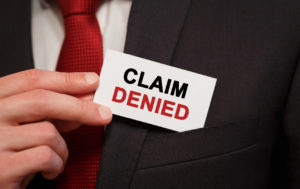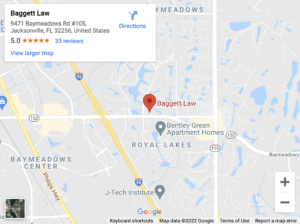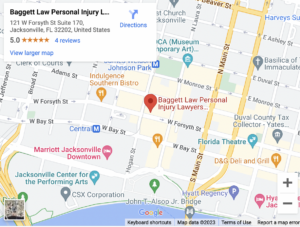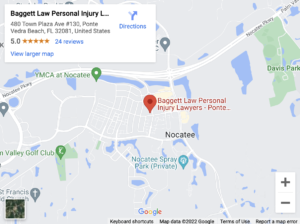
Suppose you suffer an injury that someone else caused through their misconduct. You might seek a personal injury attorney to determine if you have a viable claim. Although arranging an initial consultation with a personal injury attorney is usually easy, finding an attorney willing to represent you might be difficult. Following is an explanation of four possible reasons why a lawyer might refuse to represent you.
Estimated Case Expenses Are Too High

Pressing a personal injury claim might require a great expenditure of both time and money. If you cannot afford to pay these expenses, your lawyer will have to pay them for you in advance. A lawyer might refuse to take your case if they cannot afford these expenses.
This result is particularly likely if you contact a small firm or a sole practitioner. A larger firm, by contrast, might not balk at such expenses. Some examples of case expenses include:
- Investigation expenses, especially if your claim involves complex subject matter or requires extensive travel.
- Fees for obtaining your medical records.
- Expert witness testimony or a research report from a consulting witness. Expert witness fees often amount to hundreds of dollars per hour.
- Court fees.
- Depositions, especially if a participant needs to be flown in from out of state. Since Floria is a vacation state, this is quite likely.
Some of the preceding expenses apply only if your claim reaches trial, while others apply even during settlement negotiations. They represent only a sample of possible expenses relating to your claim.
If the estimated value of your claim barely exceeds estimated case expenses, it doesn’t make much business sense for you or the lawyer to enforce your claim. The lawyer might even be doing you a favor by refusing to represent you.
The Opposing Party’s Liability is Unclear
How likely are you to win your claim? If the facts of your case suggest that the accident was your fault, or even partly your fault, the lawyer might refuse to take your case. Under Florida’s “modified comparative negligence” system for distributing personal injury damages, a court will distribute damages according to each party’s percentage of fault. In addition, under the state’s 51% rule, you cannot recover compensation if you were mostly to blame for your accident.
If, for example, the accident was 30% your fault, you will lose 30% of your damages. This means 30% less for all purposes, including your lawyer’s legal fee. If the court finds you 51% or more at fault, you cannot recover any damages.
Some of the factors that might weaken your claim, thereby rendering liability unclear, include:
- You have a pre-existing injury similar to the new injury you are claiming (a back injury, for example). This injury might allow the opposing party to assert that the accident didn’t cause your injury.
- The statute of limitations deadline for filing a lawsuit has already expired or is fast approaching. If the statute of limitations has passed, your claim is already dead unless you have filed a lawsuit. If the deadline is extremely fast approaching, the lawyer might not have time to prepare your claim properly.
- Your injury is difficult to prove. Some injuries, such as whiplash, are difficult to prove through direct medical evidence. Even if you can prove the existence of your injury, you might not be able to prove the degree of pain and suffering it caused you, thereby reducing the value of your claim.
Most personal injury lawyers work on a contingency fee, which means they don’t receive any money unless you do. If the opposing party’s liability is unclear, the lawyer might not want to risk working for free.
Your Claim Isn’t Worth Enough Money
Personal injury law is a business. More than other fields of law, personal injury law is entrepreneurial. A personal injury lawyer’s fee typically ranges from 33% to 40% of your total recovery. If the lawyer estimates the value of your claim at only a few hundred or a few thousand dollars, they might not even want to bother with it.
Time Is Money
Even a small claim might be worth your lawyer’s time if they can resolve it with a few phone calls and emails. However, if your claim will make extensive demands on your lawyer’s time, they might be unwilling to invest this time. After all, every hour they spend on your case is one less hour they have to spend on another case that might be more lucrative.
The lawyer might look at the time versus the estimated recovery and decide it isn’t worth it. This calculus is particularly likely with a technically complex claim such as product liability.
The Defendant Cannot Pay or Is Judgment-Proof
The defendant’s liability might be beyond question. Your claim might be worth a billion dollars (unlikely, but possible), and the expenses of enforcing your claim might be low. None of that matters if the defendant cannot pay or is judgment-proof.
Following are some cases where you simply cannot collect enough money to justify enforcing your claim.
- An insurance policy is your only financial resource, and the insurance policy limits are far below the value of your claim (and the costs of enforcing it).
- Your own insurance cannot begin to cover your losses, and the defendant does not carry liability insurance. This state of affairs is common in Florida car accidents since Florida is a no-fault auto insurance state, and Florida law does not require its motorists to buy liability insurance.
- You seek to enforce an assault and battery claim against someone without financial resources.
- The defendant is in jail because of the incident that led to your claim and cannot earn enough money to pay your claim.
- The at-fault party lives in another state. Jurisdictional barriers can significantly add to the expenses of enforcing your claim.
- You suffered injuries in a hit-and-run accident and cannot locate the at-fault driver.
Many other scenarios could render it impossible to enforce your claim against the at-fault party.
Sometimes It Pays To Keep Trying
If you believe in your claim, it might make sense to continue seeking representation even if the first few lawyers refuse to represent you. A large firm might accept a case that a small firm would reject, for example, and vice versa. Try to find a balance between die-hard persistence and giving up too quickly.
Contact Us for a Free Initial Consultation
Like most personal injury lawyers, Bagget Law Personal Injury Lawyers offers free initial consultations, contact us for more information at (904) 396-1100. Although we cannot guarantee we will take your case, we can promise that we will take a look at it and give you our honest opinion of its merit. Who knows? Maybe your claim is worth more than others have led you to believe it is.




